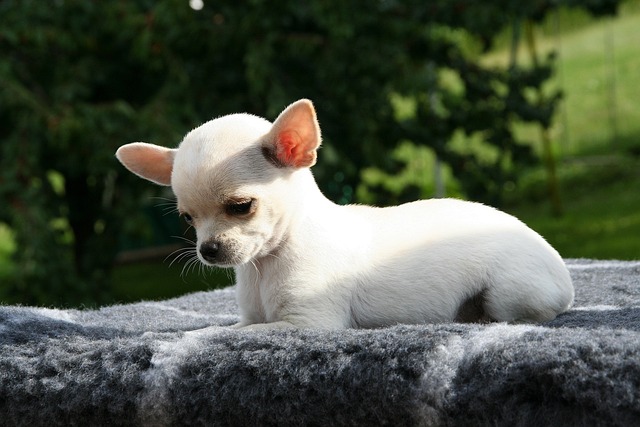
How can I tell if my dog's heatstroke is serious
Let’s be real: It’s a sticky August morning in Los Angeles, and you took your 2-year-old Golden Retriever, Max, for a walk a little later than usual
Chihuahuas’ tiny size often tricks people into thinking they’re low-effort pets, but the truth is their care leans into specific needs rather than constant work. For starters, their thin coats (short or long-haired) mean they get cold easily—you’ll need a warm sweater for them in winter, especially during walks. Unlike larger breeds that handle cold weather on their own, a Chihuahua shivering during a stroll isn’t just uncomfortable; it can lead to health issues, so planning for their comfort is key. Also, check local leash laws—many areas require even small dogs to be leashed in public, and their size makes them easy to miss if off-leash.
Their big personalities come with a side of separation anxiety—Chihuahuas bond tightly with their owners, so leaving them alone for hours can lead to excessive barking or destructive chewing. To ease this, start with short absences (20-30 minutes) and gradually extend time apart, giving them a cozy bed and puzzle toy to stay occupied. This isn’t just about keeping your home intact; in some neighborhoods, persistent barking violates noise ordinances, so addressing anxiety helps you stay compliant. Also, avoid spoiling them too much—overindulgence can lead to stubborn behavior, making basic training (like “come” or “stay”) harder later.
 Grooming needs vary by coat type but are manageable with consistency. Short-haired Chihuahuas need a weekly brush to remove loose fur, while long-haired ones need a daily quick brush to prevent tangles. Both benefit from monthly nail trims—their small nails grow fast, and overgrown nails can cause pain when walking. Unlike breeds with high-shedding coats, you won’t find clumps of fur everywhere, but regular grooming keeps their skin healthy. Also, be mindful of dental care: small breeds are prone to tooth decay, so daily teeth brushing with pet-safe toothpaste is a must—ignoring this can lead to expensive vet visits down the line.
Grooming needs vary by coat type but are manageable with consistency. Short-haired Chihuahuas need a weekly brush to remove loose fur, while long-haired ones need a daily quick brush to prevent tangles. Both benefit from monthly nail trims—their small nails grow fast, and overgrown nails can cause pain when walking. Unlike breeds with high-shedding coats, you won’t find clumps of fur everywhere, but regular grooming keeps their skin healthy. Also, be mindful of dental care: small breeds are prone to tooth decay, so daily teeth brushing with pet-safe toothpaste is a must—ignoring this can lead to expensive vet visits down the line.
Training is non-negotiable, even for a small dog. Chihuahuas can be territorial, so socializing them early with other dogs and people prevents snappish behavior. A well-socialized Chihuahua is less likely to react aggressively to strangers, which is important in shared spaces like dog parks. Also, teach them not to jump on furniture or people—their small size means a fall from a couch could injure them. Some regions require basic obedience training for dogs in public, so starting young helps you meet those standards while building trust.
Chihuahuas aren’t “high maintenance” in the chaotic sense—they just need care tailored to their size and personality. With proper planning for cold weather, steps to ease anxiety, regular grooming, and consistent training, they make loving companions. Staying on top of their needs also keeps you aligned with local pet laws, from leashing requirements to noise rules. At the end of the day, the effort you put in pays off with a loyal, playful dog who fits right into your daily routine—no extra chaos required.

Let’s be real: It’s a sticky August morning in Los Angeles, and you took your 2-year-old Golden Retriever, Max, for a walk a little later than usual

You're enjoying a summer afternoon at the park when you notice your dog has stopped panting and appears disoriented - their gums are bright red

Let’s paint the picture: You’re in your Denver apartment, watching your 4-year-old Boston Terrier, Ruby, plop down mid-play session with her favorite toy

Many dog owners notice their pets nails seem shorter after regular walks,but how much does this daily activity actually help?The answer depends on where you walk—concrete sidewalks or asphalt streets gently file nails as a dog's paws hit the ground

Most dog owners notice their pup scooting across the carpet at some point, but few connect it to impacted anal glands. These small sacs near a dog’s rectum secrete a scent for marking territory

Most vets agree that regular dog teeth cleaning is key to avoiding painful dental issues later. For healthy adult dogs, a professional cleaning at the vet’s office every 12 to 18 months usually works well.